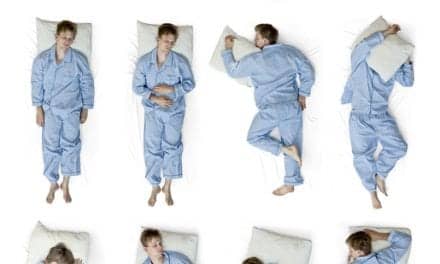How well your patients sleep could decrease—or raise—their chances of developing Alzheimer’s disease.
“With sleep apnea, your brain isn’t getting enough oxygen at night, and that increases the risk of cognitive impairment and possibly Alzheimer’s disease,” says Howard Fillit, MD, founding Executive Director and Chief Science Officer of the Alzheimer’s Drug Discovery Foundation. If you think you may have sleep apnea, talk to your doctor about a sleep evaluation.
A study presented at the 2019 annual meeting of the American Academy of Neurology suggests that people with sleep apnea may have more tau in an area of the brain that aids memory. Of 288 people age 65 and older, those with sleep apnea had 4.5 percent higher levels of tau in their brains compared to people who didn’t have sleep apnea.



